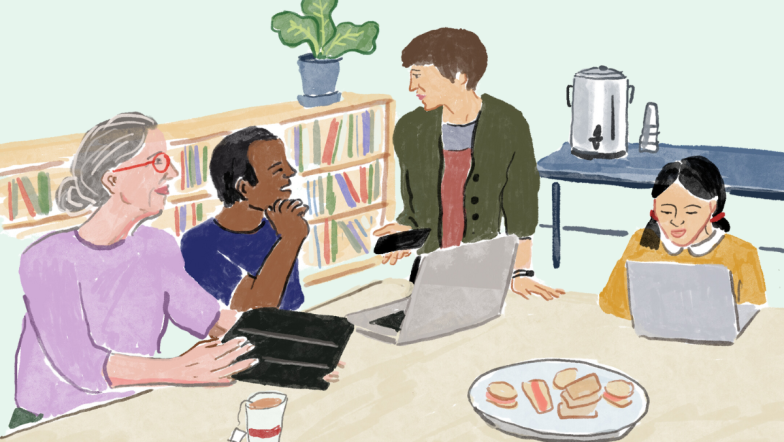Stopping homelessness before it starts
2 Jun 2021
Governments need to prioritise prevention and early intervention to end homelessness.
Through our Homeless Law program, we have seen the volatile and unaffordable nature of the private rental market. All it takes is for one thing to go wrong – the kids getting sick or the car breaking down – for Victorians to fall behind in rent, and be on the brink of eviction into homelessness.
In this context, we commend the Legal and Social Issues Committee’s acknowledgement of the importance of tenancy legal services in preventing homelessness.
We have seen this in action through our Women’s Homelessness Prevention Project, which keeps women and children safely housed through integrated legal and social work assistance. In 5 years, this project has holistically supported 671 highly at risk women and kids to avoid homelessness, breaking the links between housing insecurity, family violence and financial stress.
We commend the far-reaching findings and recommendations in Victoria’s first ever Parliamentary Inquiry into homelessness that focus on prevention and early intervention. The solutions in the final report reflect the evidence we provided at the initial public hearing and in our detailed submission, including:
1. Increasing the availability of holistic, integrated legal services
For many Victorians, the private rental market is volatile and unaffordable: over 12 months, 64% of the women we helped through our Women’s Homelessness Prevention Project faced eviction for rental arrears. The COVID-19 public health pandemic and the related recovery phase has exacerbated these issues, with women and children requiring legal support in relation to housing, financial and job-related insecurity, along with experiencing heightened risks to their safety and health.
Every day before and during COVID-19, we have seen the positive impact made by holistic legal services.
Access to integrated, holistic legal services, particularly for women and their children who are victim-survivors, is integral to help people avoid the crisis of homelessness and support them to achieve long-term stability and safety.
2. Better procedural safeguards to ensure housing security
Currently, VCAT rental decisions can only be appealed to the Supreme Court. Given the risk of adverse costs and protracted proceedings, it’s simply not an option for many renters (and their support services) to pursue their appeal through this channel.
Given the importance of VCAT decisions in preventing evictions into homelessness, we recommended creating an internal appeal mechanism for decisions made at VCAT in relation to rentals.
An internal appeals process, which already exists in other states and territories, would make sure that Victorians have an affordable and accessible right of appeal, and that the quality of VCAT decision-making is monitored and maintained.
3. Fairer laws to make evictions into homelessness a last resort
Many renters with complex circumstances are at a disproportionate risk of eviction based on alleged breaches of rental compliance orders. Victoria’s residential tenancy reforms continue to allow indefinite and broadly worded compliance orders, which create housing insecurity for Victorians experiencing or at risk of homelessness.
To minimise the risk of arbitrary, unreasonable and avoidable evictions, compliance orders should be worded as specifically as possible, and be limited to a period of 6 months before lapsing.
Victoria’s Homelessness Inquiry provides a range of short, medium and long term mechanisms that together create an important roadmap to end homelessness. And prevention is one of the keys. Together, Governments, the community and legal sectors can address housing inequality and provide the services people need to prevent evictions into homelessness.
Read our original submission to the Parliamentary Inquiry into homelessness in Victoria.


